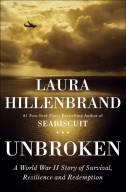Seen & Heard Today
I am so proud to be the publisher of Daddy, Help Me! This children’s book is a great way to start a conversation between fathers and children. Here is a fine piece on Ken Harvey, the author.
Apple has more cash than the federal government. Incredible little peek. I just hope the government doesn’t try to confiscate it.
This youtube video is just wonderful. John Stott, who just died, is asked “When do you feel most alive?” His answer is a 4-minute devotional treatise on living with God. Beautiful. BTW, when Stott died last week, my old friend Michael Cromertie was quoted in the NYT as saying, “If Protestants had a pope, he would have been John Stott.”
Some things I do not understand:
- Why we want to see friends on TV. We see them in person, but if they’re going to an NFL game or attending a political rally or religious event, we want to know where they’ll be sitting so we can watch for them. Why? I understand if a friend is being interviewed, making a televised speech, acting, or appearing on Jeopardy. But, why is seeing them digitized and televised so important?
- Moments of silence. I have never understood the purpose. And I don’t understand what my mind is supposed to do in one.
- Why we expect people to repost things on Facebook in order to prove they care about motherhood, US troops, the environment, God, etc.
- Why reporters only have curiosity about things they personally doubt or despise.
- What “spot on” means.
- Opinion. I absolutely do not get why the opinion of a man or woman on the street is important. Would you ever care what the person gassing his/her vehicle near you cares about US foreign policy? Do you even barely care what the lady checking out ahead of you at the grocery thinks about quantum physics? Do YOU even care about it? Yet, those are the very people who inevitably show up on local (sometimes national) TV news programs. I just do not care.
Seen & Heard Today Read More »

